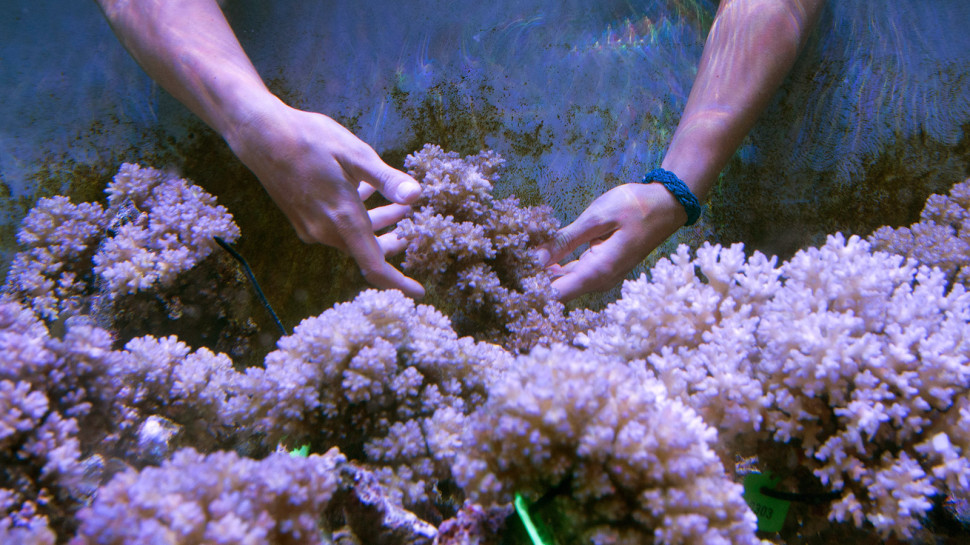This is a coral nursery. Each tree bears a ripening crop of a hundred or more pieces of coral. The smallest fragments are pinkie-sized, twirling on their tethers as other divers kick by; the largest hang like many-limbed chandeliers, turning slowly in the current.
When I get closer, I can see the individual polyps, the anemone-like creatures that make up each fragmented colony. Nestled in the crenellated openings in their solid skeletons, they are waving their fleshy tentacles through the water, feeding.
We are there to tend the trees: Each one needs to be surveyed, scrubbed of algae, and have its biggest corals subdivided into new cuttings. Any coral bleached by high temperatures or damaged by disease needs to be removed to a nearby heap. This is a daunting task considering that the Coral Restoration Foundation (CRF) maintains five coral nurseries with some 40,000 corals growing on trees just like these ones, all along the spattered arc of the Florida Keys.
What happens to coral reefs as the ocean warms and acidifies over the coming century? Corals might seem removed from human society, but in fact that not-so-simple question leads to an even scarier follow-up: What happens to us?
Coral reefs are the richest ocean ecosystems we have — they support an estimated 25 percent of marine species. According to a 2014 report from the Food and Agriculture Organization, reefs are responsible for 17 percent of the protein we consume globally; in some coastal or island countries, like Sierra Leone or the Maldives, that number can be as high as 70 percent. Reefs serve as offshore larders, nurseries for important commercial fish (like tuna), and shelter for important ecological species (like sharks). They’re storm breaks for populated shores and bait for tourists whose dollars support entire local economies.
We know that reefs are crucial to the oceans as we know them, and to our societies as we’ve made them — and we know they are in serious trouble. According to one 2000 report, we’ve lost 27 percent of coral worldwide, and stand to lose another 32 percent in the next 30 years.
What we don’t know is if there’s anything we can do about it. Luckily, that won’t stop people from trying: Around the world, a scrappy handful of scientists, entrepreneurs, and volunteers are taking on this colossal problem, one branch at a time.

